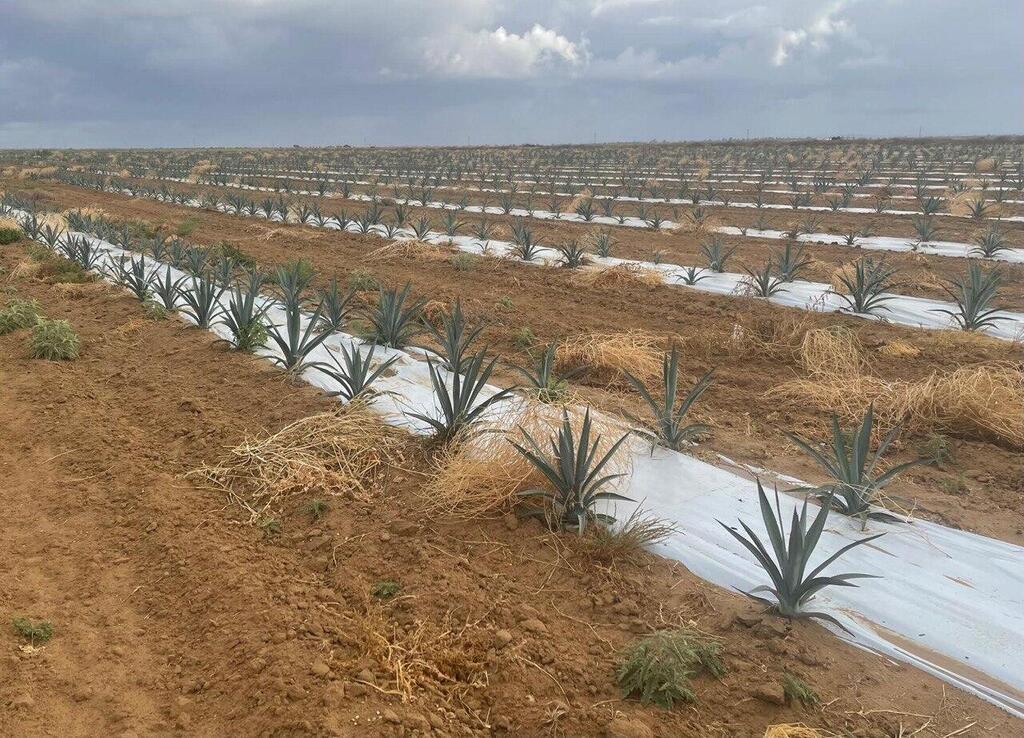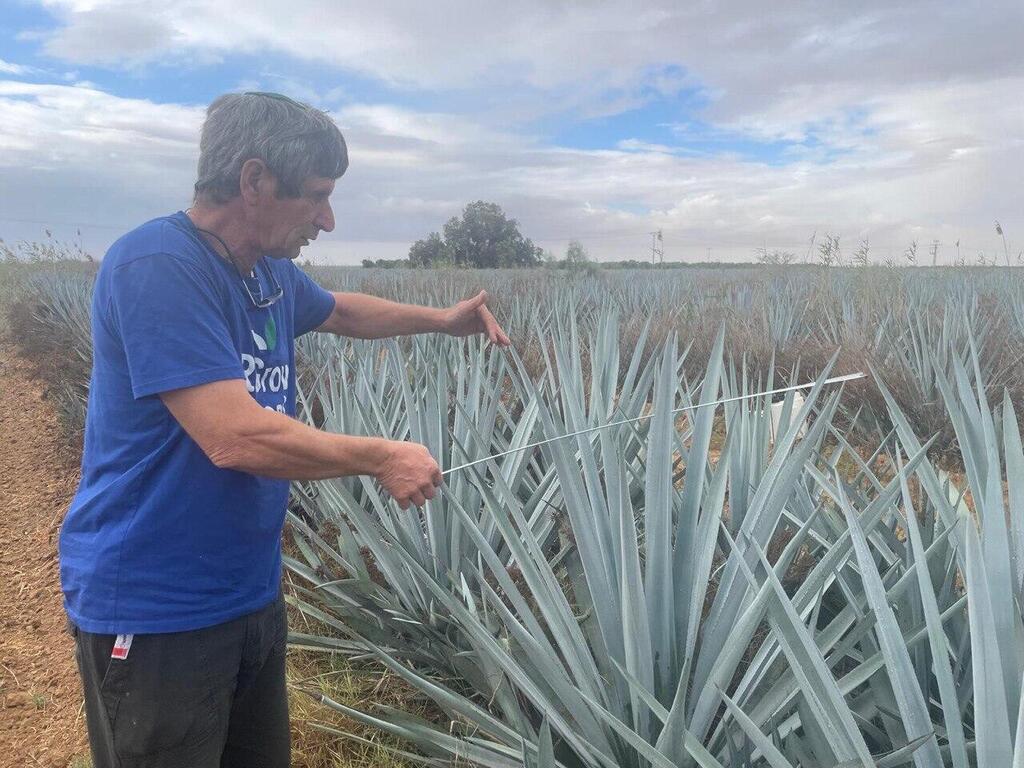Israel is not a major producer of spirits. While the Israeli wine industry has flourished in size and reputation, other forms of alcohol have not yet succeeded in significant local production—until now.
Thanks to a visionary Jewish American entrepreneur, a new distillery is under construction in Kibbutz Alumim in the Negev Desert, near the Gaza border. The project follows an unexpected bumper crop of agave plants, the key ingredient for mezcal, more commonly known as tequila.
It all began when Avi Leitner discovered authentic tequila during a trip to Mexico. In the United States, he had only tasted poor-quality versions of the drink. This newfound appreciation led him to explore the production process and the agave plant itself.
Believing that the Negev’s soil and climate were ideal for cultivating agave, Leitner enlisted investors and the kibbutz to join him in this experimental venture. Local farmers, unfamiliar with the crop, were supported by Mexican experts brought in to oversee the project.
The Kibbutz Alumim distillery will produce mezcal, as the term "tequila" is protected and can only be used for products made in specific regions of Mexico.
The kibbutz faced a tragic loss on October 7, when 19 people, including Thai workers and local farmers, were killed by terrorists as they worked the fields. The kibbutz’s enclosed residential area remained secure, but the open fields left those working there vulnerable. This tragedy has given the agave cultivation and distillery project a deeper significance—a commitment to reviving and rejuvenating the Negev.
Five years ago, the first agave plants were planted, and they are now ready for harvest. “Growing up, everyone drank terrible tequila, but when we got to Mexico, I tasted something entirely different,” Leitner told Ynet.
“I started researching agave plants worldwide and realized the Negev could be perfect for cultivation. In Mexico, it takes seven to eight years to grow agave, sometimes even ten, but with Israeli agriculture and ingenuity, we believed it would take less time and produce a higher sugar content. After five years, our agave has even surprised the Mexican consultants.”
What surprised them exactly?
“The agave grown in the Negev is of higher quality than that in Mexico,” Leitner explained. “The local farmers knew nothing about agave, so we brought in experts from Mexico to assess the soil and conditions. After seeing photos of our agave, they were amazed. They said that nowhere else in the world has agave been grown as tall. They’ve visited several times but are now hesitant due to the war.”
This isn’t the first time agave has been planted in the Negev. In the 1950s, David Ben-Gurion planted agave Americana in Moshav Gilat using seedlings imported from Africa. His project was abandoned with the advent of synthetic fabrics. However, remnants of Ben-Gurion’s agave still grow in the Negev, a testament to his vision for the region.
Leitner aims to bring hope back to the Negev, despite the challenges. “This is the first time anyone is trying to make high-quality alcohol like this in Israel. People have lost hope in the Negev, seeing it as abandoned. I want to change that perception. Although the distillery is still under construction, we want to show that the Negev is still alive, and farmers are working hard. On the anniversary of the tragedy, we want to remind everyone that there is still hope here.”
Ben Gurion, move over
This isn't the first time agave has been planted in the Negev—back in the 1950s, David Ben Gurion planted agave Americana in the moshav of Gilat using seedlings he imported from Africa. Ben Gurion planned to make fabrics and threads from the agave, but shortly after planting, synthetic fabrics and threads started to emerge on the market, and Ben Gurion's agave project was scrapped before it could even begin. Leitner notes that to this day, there are remnants of Ben Gurion's agave Americana—just a few seedlings that continued to grow in the Negev, "exactly where Ben Gurion's people planted them."
He adds, "This is the first time anyone is trying to make sexy alcohol like this. We saw how everyone lost hope in the Negev and saw it as abandoned, so I want to bring good news, and although the distillery is still under construction and hasn’t opened yet, I want people to see hope. Especially on the anniversary of the tragedy, we want to show everyone that farmers are still working and that there is still hope in the Negev. We are all very excited to grow in the Negev again, and maybe it will become green once more thanks to the agave plants."
Agave cultivation is rare outside Mexico. Attempts have been made in California and South Africa, but not on the scale envisioned for Kibbutz Alumim. Leitner plans to transform the Negev into a global hub for agave farming.
“We plan to plant an additional 100 acres of agave each year. It takes five years for a seedling to mature, and while I don’t know yet how many bottles we will sell, we’re taking it one step at a time. We’re doing something significant, and we hope to become a global center for spirits and agave farming. Building a brand takes time, but Israeli farmers might just make history in the Negev by growing agave faster and better than anyone else.”





